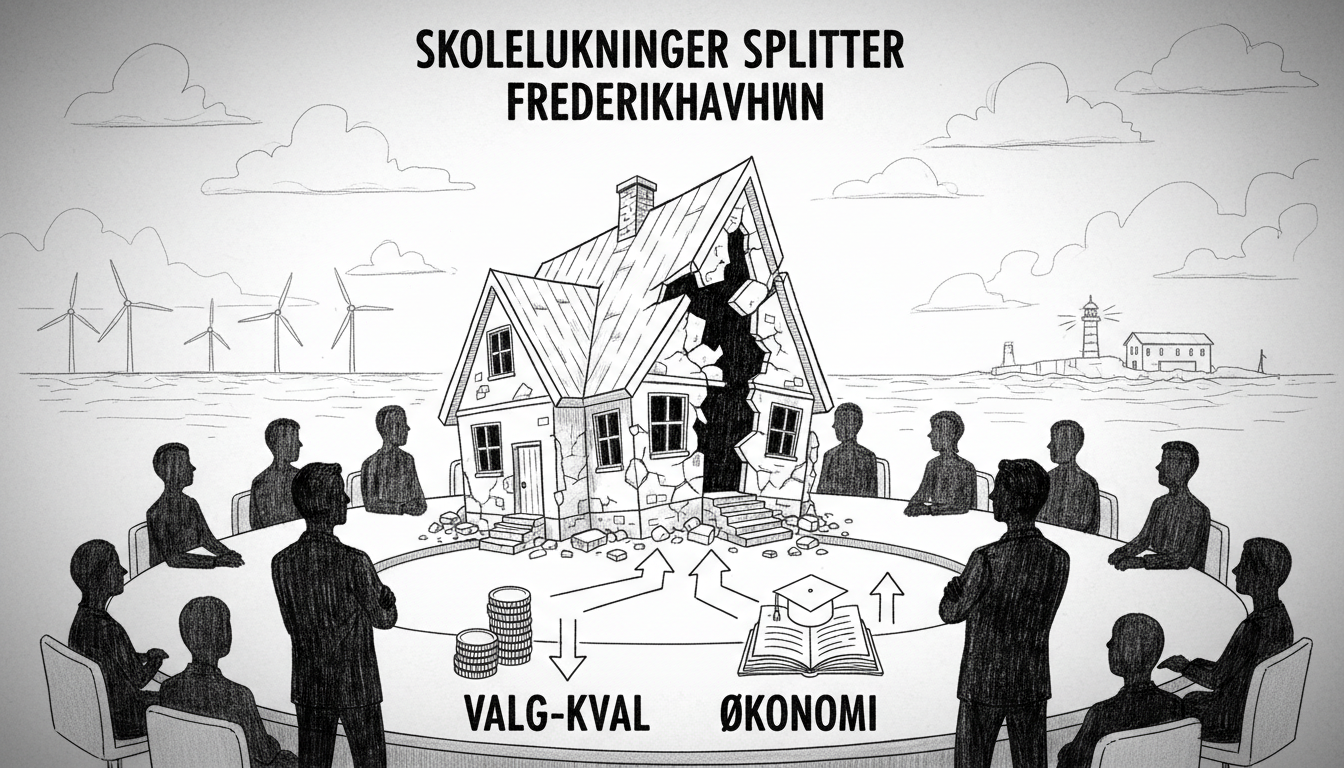Frederikshavn faces a difficult political battle over school closures as declining enrollment and rising costs create financial pressure. The debate has split the city council and could determine the outcome of upcoming local elections.
Student numbers have dropped dramatically in recent years. About 1,000 students have disappeared from Frederikshavn's public schools over the past decade. The municipality now operates just 10 public schools, down from 21 schools in 2007. The last major school closures occurred ten years ago, but demographic changes continue to reduce enrollment.
The core question for politicians remains urgent. Should Frederikshavn close more public schools during the next council term to ensure better resources for remaining institutions? This debate touches every family in the municipality and exposes fundamental disagreements about education priorities.
Denmark's municipal structure adds complexity to the situation. Following nationwide municipal mergers, Frederikshavn absorbed surrounding areas, creating both opportunities and challenges for school administration. The current debate reflects broader trends affecting rural and semi-rural municipalities across Denmark, where population shifts often outpace infrastructure planning.
Local politicians face competing pressures. Parents want neighborhood schools preserved, while budget realities demand efficiency. The math appears straightforward – fewer students spread across the same number of schools means reduced resources per institution. But the human impact makes decisions emotionally charged and politically risky.
This situation mirrors challenges in other Nordic municipalities experiencing demographic changes. Similar debates have occurred in Swedish and Norwegian communities where rural populations decline while urban areas grow. The Frederikshavn case demonstrates how education infrastructure becomes a flashpoint in local politics, especially when budget constraints meet community attachment to local institutions.
The upcoming election will test whether voters prioritize fiscal responsibility or school preservation. Council members must balance immediate community concerns against long-term educational quality. Their decision will shape Frederikshavn's educational landscape for years to come.
International readers should understand that Danish municipal elections focus heavily on local services like schools, elderly care, and infrastructure. Unlike national politics dominated by broader issues, local elections often turn on concrete quality-of-life matters that directly affect residents' daily experiences.

